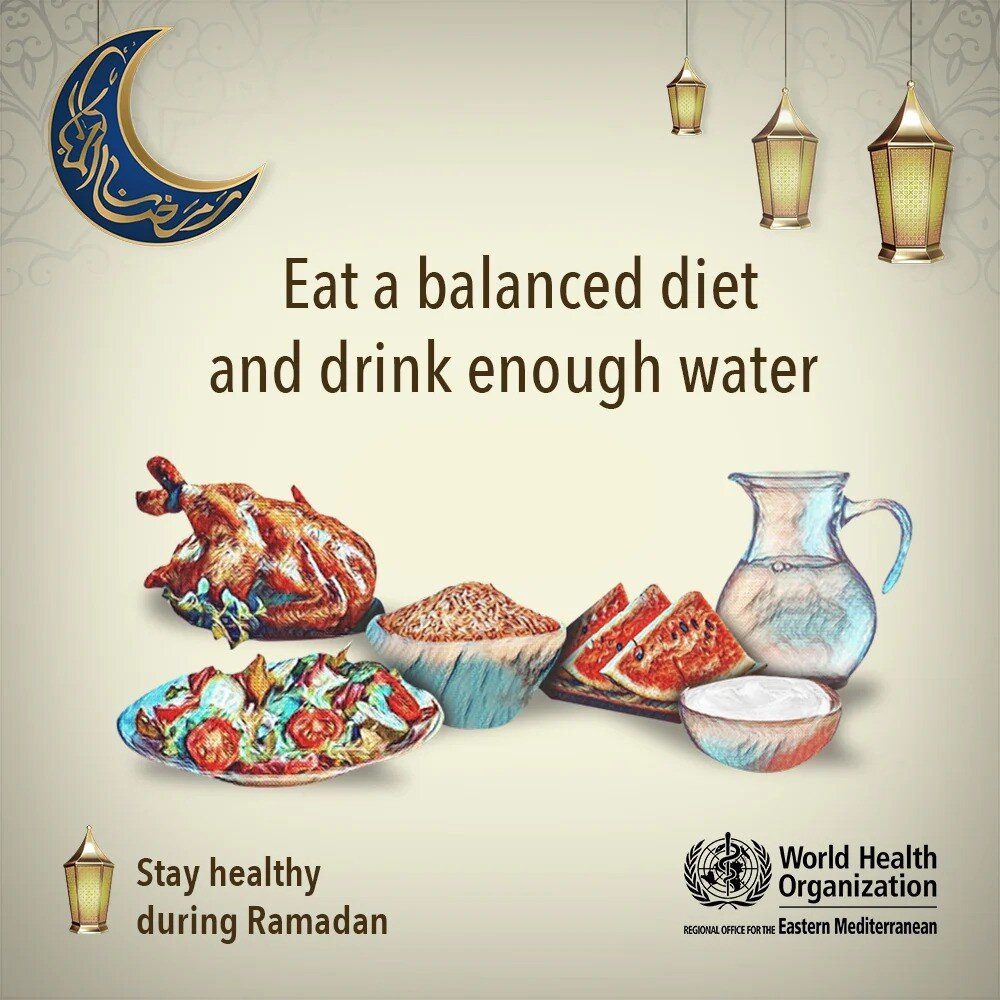WHO’s essential guidelines for a healthy Ramadan

TEHRAN – Ramadan, the ninth month of the Islamic calendar, is dedicated to reflection, spirituality, peace and worship.
During this month, Muslims observe a fast for the whole day and break it after sunset. They have their meal twice a day, one is pre-dawn, known as Suhoor, and the other one is post-sunset, known as Iftar.
Every year, the World Health Organization states guidelines that we must abide by to maintain good health during the month of Ramadan.
Balanced diet
It is advised to consume a balanced diet and avoid having too fried or oily food before or after breaking the fast. We should ensure that we consume a nutritious diet that can nourish the body. Having an adequate amount of water post-fasting is also mandatory.
Limit salt intake
We should be mindful of the salt intake we are doing with our food. We can instead add flavors to the food with various herbs. The goodness of natural herbs can further nourish the body.
Exercising
It is important to keep exercising throughout Ramadan – this will enable digestion and movement will keep the body fit and healthy.
Tobacco and vaping
We should refrain from tobacco consumption and vaping to keep ourselves healthy.
Baking or steaming
Consuming too much-fried food can harm the health. Instead, we can choose other ways of cooking such as steaming and baking the food. This will retain the nutrition as well as make the diet healthy for consumption before or after fasting.
Iranian traditional medicine
Nafiseh Hosseini Yekta, the director of the health ministry’s office for Iranian traditional medicine, says there are special measures regarding the modification of eating and drinking habits, based on the temperament of people, the temperament of different types of food, and the right time to eat and drink, that can help reduce the effects of improper nutrition on the body.
It is appropriate to start Iftar with a warm, slightly sweet, light, simple, and easy-to-digest drink, and the best option is to consume dates, honey, figs, or raisins along with a hot drink.
In addition to rapidly increasing blood sugar and eliminating weakness, it does not weaken the function of the stomach and prevents overeating.
One to one and a half hours after breaking the fast is the right time to consume fruit, and drinking natural juices, in addition to reducing the intensity of thirst, is also considered a useful source for providing minerals and vitamins needed by the body.
Consuming dry, sweet, fried and high-fat, starchy, and spicy foods and consuming too much meat, as well as drinking coffee, cocoa, and strong tea, are some of the things that cause thirst and it is better to stay away from Suhur meal.
Exercising at the peak of hunger is not recommended at all, and to prevent thirst, you should not exercise during hot hours of the day or in hot places.
MG
Leave a Comment